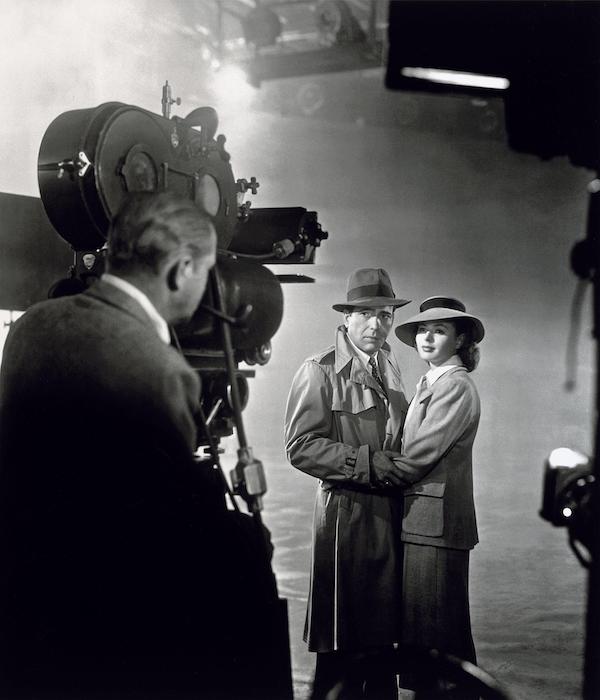Cinemallennials: Casablanca (1942)

For those of you who are unfamiliar with Cinemallennials, it is a bi-weekly podcast in which I, and another millennial, watch a classic film that we’ve never seen before, and discuss its significance and relevance in today’s world.
In this episode, I talked with Alexandra Riba about one of the most iconic and beloved films of all time, Casablanca. From its multi-dimensional characters and timeless themes to its writing, cinematography, and score, Casablanca is often referred to as ‘the perfect film.’ Many filmmakers have been influenced by its themes and elements – some have included direct references to it in their films, while others reflect some of its brilliance into their own works.

Set during WWII, Casablanca follows the story of American Richard Blaine (Humphrey Bogart), owner of Rick’s Café Américain in refugee-filled Casablanca, who must decide whether or not to help his former lover, Ilsa Lund (Ingrid Bergman) and her freedom-fighter husband Victor Laszlo (Paul Heinred) escape Casablanca so that they can continue their fight against the Nazis.

The film was adapted from an unproduced 1940 stage play by Murray Burnett and Joan Alison called Everybody Comes to Rick’s. The story was based on Burnett’s experiences when he traveled with his wife to Vienna in 1938 to help Jewish relatives smuggle money out of the country, and later, when they both frequented a nightclub in the south of France, where a black man played jazz and the clientele consisted of French, refugees, and Nazis.

Many of the cast were refugees themselves, fleeing their own countries and eventually making their way to America. Conrad Veidt who plays Major Stasser, the menacing Nazi officer, defied propaganda minister Joseph Goebbels by identifying himself as Jewish when asked to declare his race in a questionnaire meant to purge the film industry. Veidt was not Jewish, but his wife was, and there was nothing in this world that would compel him to break off his relationship with her or to break off his support of the German Jewish community. Helmut Dantine who played Jan (the young refugee who gambles to try to earn money to purchase travel visas for him and his wife) was imprisoned in a concentration camp after opposing the Nazis in Austria before being released and arriving in California. Madeline Lebeau, who plays Yvonne – and who has a beautifully impactful scene in which she is crying while passionately singing La Marseilles –made the exact journey to freedom many wanted to make in Casablanca. After fleeing from the Nazi invasion of France, Lebeau and her husband obtained transit visas and eventually arrived in America. These are only a few examples of the journeys that influenced the emotionally resonant performances in the film that still impact audiences all over the world today.

During this episode, Alex and I will be discussing topics such as doing what’s right in order to help others, how non-action can beget violence, and the relationship between sacrifice and love. Throughout Casablanca, the main characters are presented with a choice to do the right thing (and lose everything they love in order to benefit the world) or to benefit themselves alone (and keep the things they love the most). This moral dilemma still resonates today as more and more global conflicts arise, but by watching Casablanca, we as the younger generation can be made aware of how our choices can impact others and the world around us.
I hope you enjoy this episode of Cinemallennials, which you can find here on apple podcasts or on spotify. Please reach out to me as I would love to hear your thoughts on Casablanca, especially if you’re a first-time viewer too!
— Dave Lewis for Classic Movie Hub
You can read all of Dave’s CMH Cinemallennials articles here.
Dave Lewis is the producer, writer, and host of Cinemallennials, a podcast where he and another millennial watch a classic film that they haven’t seen before ranging from the early 1900s to the late 1960s and discuss its significance and relevance in our world today. Before writing for Classic Movie Hub, Dave wrote about Irish and Irish-American history, the Gaelic Athletic Association in the United States, and Irish innovators for Irish America magazine. You can find more episodes of Cinemallennials, film reviews and historical analyses, on Dave’s website dlewmoviereview.com or his YouTube channel.























































